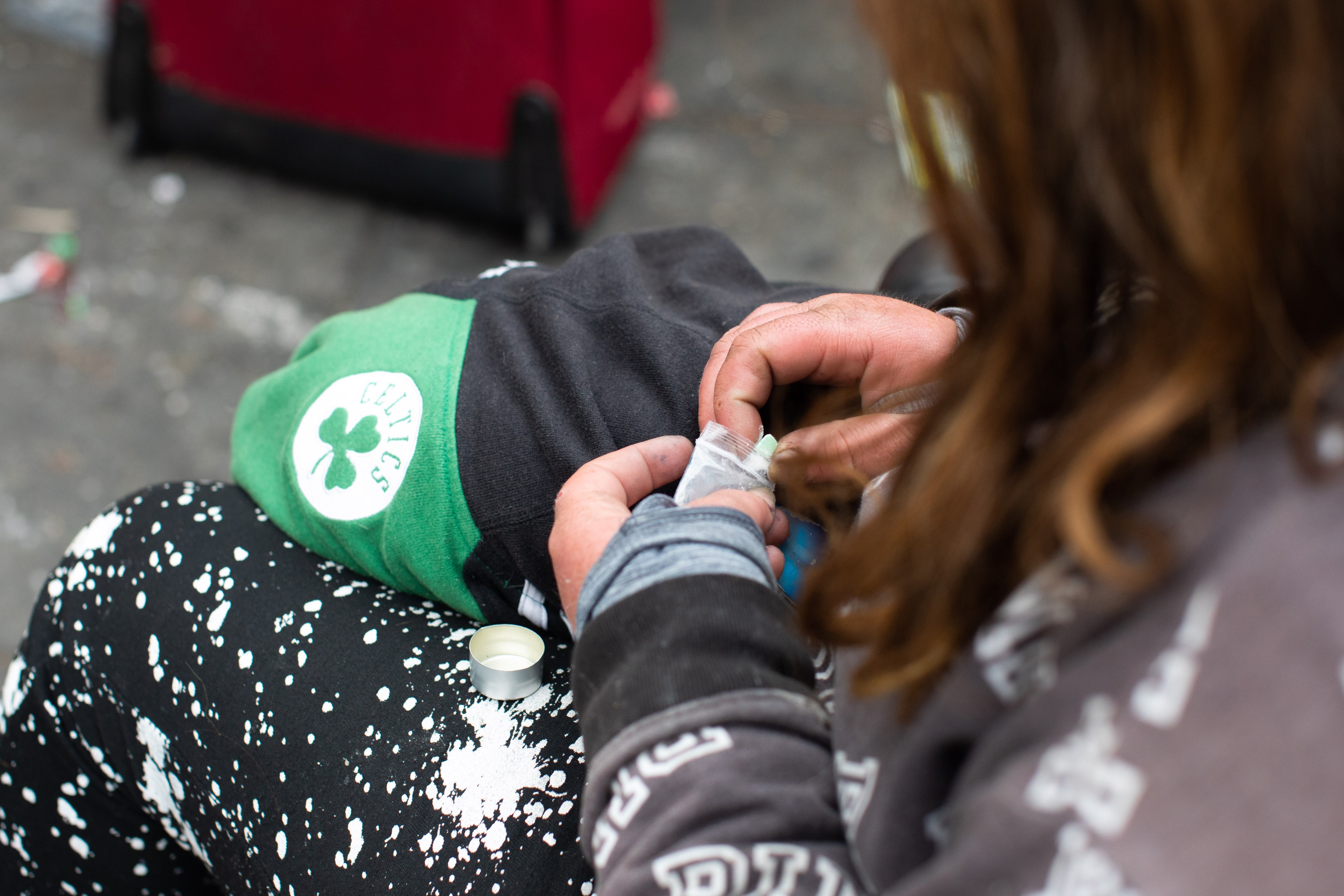Amid an overdose epidemic on pace to claim a record number of lives this year, a top San Francisco public health official said fewer than half the people who sought help from the city’s biggest drug detox center this past spring were admitted for treatment.
The city’s largest contracted withdrawal management clinic, run by the nonprofit HealthRight 360, admitted between 45% and 55% of individuals seeking treatment between February and May, according to a Sept. 5 letter from San Francisco Behavioral Health Director Hillary Kunins.
The new data shared by the San Francisco Department of Public Health in response to an inquiry from supervisors Catherine Stefani and Rafael Mandelman raises questions about the city’s ability to provide drug treatment as an average of two people die every day from drug overdoses, according to this year’s preliminary data.
Mandelman said Kunins’ estimate runs in stark contrast with prior data from the health department, which claimed in October 2022 that the average wait time for drug detox in the city was approximately one day.
“It’s kind of scandalous,” Mandelman said. “It’s a big problem when you can’t get these agencies to be honest about what they’re failing to do.”
Mandelman’s doubts line up with accounts of people who said they were unable to get themselves or their loved ones into treatment.
A 32-year-old woman named Shahada Hull tried to enter HealthRight 360’s drug detox earlier this month but was turned away due to a Covid outbreak, her godfather Franzo King told The Standard. Another detox clinic run by the Salvation Army was unable to take her because of her mental illness, an advocate working with her said.
A few days after she was reportedly denied treatment from the programs, Hull went back to the streets while suffering from psychosis and infections on her legs, according to King. He said Hull has since been hospitalized, but it’s unclear whether a detox bed will become available before her Friday discharge date.
“They told me they were going to let her in. … She’s down to skin and bones,” King said. “Who’s playing God around here … choosing who’s going to live or die?”
Kunins’ letter acknowledged that detox intakes are sometimes thwarted because the programs aren’t allowed to accept people who are intoxicated or suffering from medical or psychiatric issues. The department said they try to find alternative placements when programs are full or people are ineligible for same-day access to the city’s detox services.
Adrian Maldonado, a director at the Salvation Army’s detox program, said they do accept people with mental illness as long as they’re not experiencing an immediate psychiatric emergency and are in possession of their necessary medications. But the Salvation Army’s detox program isn’t equipped to handle psychiatric emergencies, requiring them to rely on other local agencies to supply their patients with medication. Once those patients are stabilized and arrive with the correct medication, they are admitted.
Other prospective patients may leave before the intake is completed.
HealthRight 360 CEO Vitka Eisen said patients who leave before finalizing intake account for the majority of the treatment gap described by Kunins’ estimate. Eisen said she’s applying for funding in hopes of hiring people who can help patients navigate the oft-lengthy admission process.
“A lot of people have second thoughts,” Eisen said. “People want what they think is their last high, and I’m so terribly terrified of them dying in that moment.”
Eisen said the nonprofit’s staffing shortage hampers its ability to complete intakes later in the day and on weekends. The program also halted intakes for two weeks in late August due to a Covid outbreak among medical staff. But Eisen contended that many of the people who weren’t initially admitted into the program were transported to other facilities or left on their own accord.
The city’s budget for behavioral health services sits at $592 million, according to a January presentation. The health department employs over 7,000 people and relies on nonprofits such as HealthRight 360 to administer many treatment services. Mandelman said he thinks the department is too large to recognize systemic issues with its programs.
“It seems like there’s giant holes here that need to be filled,” he told The Standard. “These bureaucracies are so vast that the people who are telling us that everything’s fine may not even themselves know the extent to which things are not fine.”
San Francisco voters passed a law in 2008 known as Treatment on Demand that required the city to provide treatment to those who need it at a moment’s notice.
However, the city’s service providers say they’re struggling to meet that demand, thanks to a nationwide behavioral health worker shortage as well as other complications that arise during intake. A treatment dashboard operated by the city shows there are zero detox beds available for men and nine available for women at the time this story was published.
Stefani called for an audit of HealthRight 360 earlier this month after she caught wind that the nonprofit closed intakes to the detox due to a Covid outbreak in August.
Mandelman said the nonprofit’s inability to sometimes provide services should ultimately be blamed on the city, however. He and Stefani have called for a hearing to probe the city’s treatment gaps that will take place either in late October or early November.
Editor’s Note: This story has been updated to include additional information about the Salvation Army’s detox admissions.
